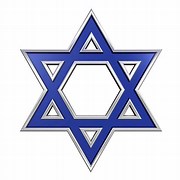From 1993 to 1995, I studied philosophy and spirituality at the Vrije Universiteit in Amsterdam. I had just completed my active military service as an officer in the Royal Netherlands Air Force in September 1993 and was able to fulfil my heart’s desire to study with Prof. Dr. Theo de Boer, who sadly passed away in 2020. At the time, I had no idea about my Jewish heritage; my mother and her sisters never mentioned it, but I was already intensively exploring it on my own.
During a lecture, one of my fellow students asked the professor: What is the definition of spirituality? I have never forgotten his answer to that question. He said: If I knew that, I would do something else. Was that the last word on the matter? No, of course not. Professor de Boer wanted to point out that, in addition to the world of definitions, as is customary in the study of the natural scientific world view, there is another reality that cannot be captured in definitions. That reality includes talking about spirituality in philosophy, theology and poetry.
Nowadays, you often hear people talking about spirituality as a container concept. You can throw anything into that container that gives the impression of having to do with real spirituality. However, in my opinion, what is in that container is often just humbug, rubbish and window dressing.
Four things are of great importance when we ask ourselves what drives us as Jews to form a living and fruitful community, to maintain it, to let it grow and flourish, and to connect with what previous generations have offered us as valuable and indispensable. What are the sources from which we live, personally, but also as a community? What motivates us to do what we do and what we want to be? Not only what we are, but also what we want to be, become and remain. That is the essence of the question of spirituality.
Prof. de Boer presented us, as students, with three fundamental questions regarding spirituality as a possibility, namely:
- What can I know?
- What should I do?
- What can I hope for?
Before going into this further, I discovered that there is a parallel triad in Judaism that is widely regarded as constitutive within the Jewish tradition and can be found in all Jewish denominations, namely:
- Learning
- Ethics
- Celebration
I will explain the words, or concepts if you will, together.
What can I know? What should we learn? In my opinion, this concerns knowledge of our wonderful Jewish tradition in all its aspects, as found in our culture and literature, which should be increased because it enriches us spiritually and expands our intellectual possessions.
What should I do? Ethics can be regarded as the reflection on our moral behaviour. Surely this is about the way we treat each other as human beings, as members of a kehilla, but also as members of the larger Jewish community in the Netherlands and beyond? What do we do for and with each other, and does that make us (more) happy? This also applies in full to well-meaning people who are our guests and/or have expressed a desire to join us.
What can I hope for? What do we actually celebrate together at our gatherings on Shabbat and holidays? Let us increase our spiritual awareness, which is about religious life, about our personal and communal lived religiosity. In my opinion, this is nothing more than a perspective from which we view the world and the reality in which we live. True authentic spirituality is aimed at connecting us with the Name (the programme) of the Unspeakable, about whom we cannot remain silent. We do this personally, and together in attention, prayer and praise on Shabbat and during Jewish holidays. All of this takes shape and is expressed/sung in the Jewish Liturgy. Liturgy is understood as service to HaShem, service to humanity and service to the world.
There is also another perspective that I believe is of great importance, and I sincerely hope that you, readers, will share it with me. That is the perspective of aesthetics. It is the view of beauty. What we do, what we experience with our senses and express to the outside world, must also possess beauty. Simply put, it must also be beautiful. Culture, music, song, literature, poetry (pyutiem), art in all its forms, enjoying these things together is also part of our Jewish spirituality. Our clothing, robes, rugs, colours, furniture, the interior of the synagogue, architecture, lighting and so on. Taken together, all of this is, in my opinion, also an essential part of lived Jewish spirituality.
I will conclude. Are not all the elements described above building blocks for a solid foundation on which the spiritual edifice of our kehilla can be built, now and in the near future? We are all invited to contribute to this with our personal talents and abilities. That is true, authentic and practical Jewish spirituality. May it be so.
Ehud Posthumus




